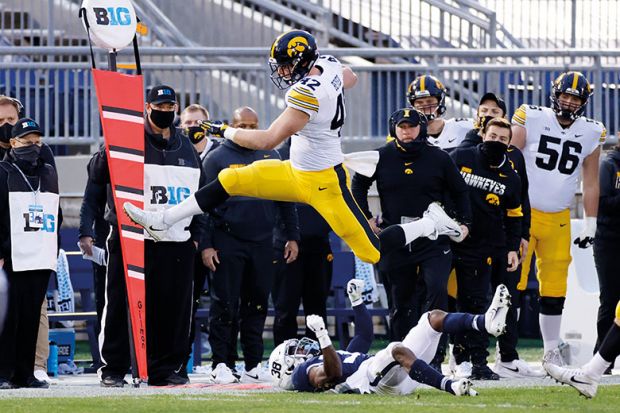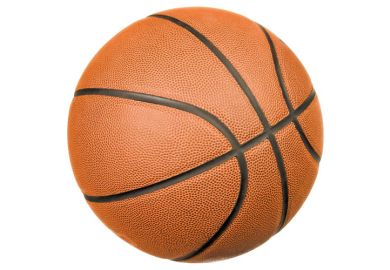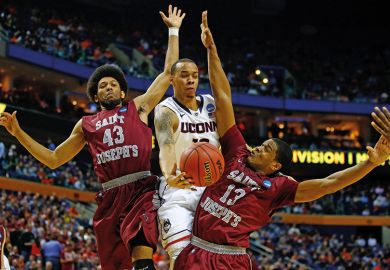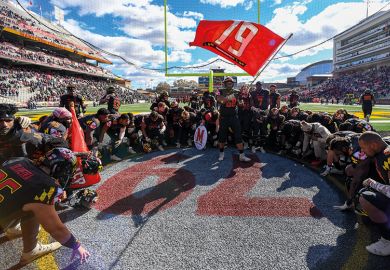Dozens of student-athletes at the University of Iowa and Iowa State University are under investigation for gambling, in what a leading expert sees as an early warning of the widespread harms coming to US campuses from a nationwide embrace of sports betting.
More than 40 student-athletes at the two universities are among more than 100 people suspected of illegally betting on college sports, according to the Iowa Racing and Gaming Commission.
Sports betting became widely legal in the US after a 2018 US Supreme Court ruling that ended the state of Nevada’s longstanding monopoly on the practice, and professional leagues have moved to exploit the opportunity, with an especially aggressive rush in the past year.
The National Collegiate Athletic Association (NCAA) oversees the nation’s $15 billion (£11.9 billion) college sports enterprise and largely forbids the involvement of student-athletes in any kind of gambling. But wagering is legal in most US states at age 18 or 21 (although such limits are regarded as difficult to enforce), and heavy in-game promotion of betting is now commonplace by US professional sports leagues. The annual US college basketball championship tournament on its own attracts an estimated $3 billion in betting.
The cases in Iowa, and some emerging instances in other locations in the country, should therefore be taken as a serious warning of the traumas that gambling is likely to bring to US higher education and its students, said a leading expert on college sports, Andrew Zimbalist, a professor of economics at Smith College.
“It’s a massive, massive issue that is not going to go away,” Professor Zimbalist said.
Details in the Iowa cases are only beginning to emerge. The University of Iowa said it has been told of apparent problems involving 111 individuals, including 26 of its current student-athletes. Iowa State is investigating about 15 cases involving its student-athletes. Also, the University of Alabama recently fired its head baseball coach during an investigation of concerns that he had bet on his own team.
US colleges and universities should be concerned on multiple levels, Professor Zimbalist said. He cited data showing that about 75 per cent of US college students have at least tried betting, and studies finding that about 2 per cent to 7 per cent of gamblers become addicted.
That is especially concerning in a college setting, Professor Zimbalist said, now that the NCAA has agreed to allow student-athletes to get paid indirectly through legalised licensing activities. That situation likely will entice student-athletes who cannot generate their own licensing opportunities to explore other ways of keeping up financially with their peers, creating a receptiveness among them to professional gamblers seeking to secretly influence the outcomes of college sports, he said.
Other emerging problems, Professor Zimbalist said, include student-athletes facing increasing instances of harassment and abuse from fellow students who lose bets as a result of their game performances. Students also might be forced to live amid gambling-addicted peers, whose habits lead to borrowing or stealing money and related violence, he said.
“It transforms the social relationships of students and colleges,” Professor Zimbalist said.
The NCAA offered a limited response to the situation, saying through a spokesperson that it “is monitoring the situation” but cannot comment on current, pending or potential investigations.
“The NCAA takes sports wagering very seriously and is committed to the protection of student-athlete well-being and the integrity of competition,” said a spokesperson, Saquandra Heath.
The main need for action appears to be among state and federal politicians, who should be acting to outlaw betting on college campuses, Professor Zimbalist said. The NCAA might have limited options on its own, he said, although it could argue more strenuously for government action, and it could forbid the emerging trend of US universities taking payments from the gaming industry to encourage betting by their own students.
Register to continue
Why register?
- Registration is free and only takes a moment
- Once registered, you can read 3 articles a month
- Sign up for our newsletter
Subscribe
Or subscribe for unlimited access to:
- Unlimited access to news, views, insights & reviews
- Digital editions
- Digital access to THE’s university and college rankings analysis
Already registered or a current subscriber?







